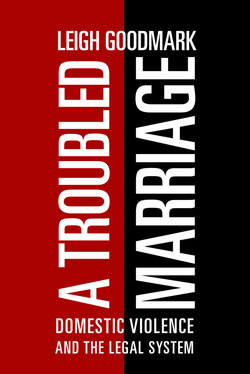Описание книги
Choice's Outstanding Academic Title list for 2013 The development of a legal regime to combat domestic violence in the United States has been lauded as one of the feminist movement’s greatest triumphs. But, Leigh Goodmark argues, the resulting system is deeply flawed in ways that prevent it from assisting many women subjected to abuse. The current legal response to domestic violence is excessively focused on physical violence; this narrow definition of abuse fails to provide protection from behaviors that are profoundly damaging, including psychological, economic, and reproductive abuse. The system uses mandatory policies that deny women subjected to abuse autonomy and agency, substituting the state’s priorities for women’s goals. A Troubled Marriage is a provocative exploration of how the legal system’s response to domestic violence developed, why that response is flawed, and what we should do to change it. Goodmark argues for an anti-essentialist system, which would define abuse and allocate power in a manner attentive to the experiences, goals, needs and priorities of individual women. Theoretically rich yet conversational, A Troubled Marriage imagines a legal system based on anti-essentialist principles and suggests ways to look beyond the system to help women find justice and economic stability, engage men in the struggle to end abuse, and develop community accountability for abuse. Choice's Outstanding Academic Title list for 2013 The development of a legal regime to combat domestic violence in the United States has been lauded as one of the feminist movement’s greatest triumphs. But, Leigh Goodmark argues, the resulting system is deeply flawed in ways that prevent it from assisting many women subjected to abuse. The current legal response to domestic violence is excessively focused on physical violence; this narrow definition of abuse fails to provide protection from behaviors that are profoundly damaging, including psychological, economic, and reproductive abuse. The system uses mandatory policies that deny women subjected to abuse autonomy and agency, substituting the state’s priorities for women’s goals. A Troubled Marriage is a provocative exploration of how the legal system’s response to domestic violence developed, why that response is flawed, and what we should do to change it. Goodmark argues for an anti-essentialist system, which would define abuse and allocate power in a manner attentive to the experiences, goals, needs and priorities of individual women. Theoretically rich yet conversational, A Troubled Marriage imagines a legal system based on anti-essentialist principles and suggests ways to look beyond the system to help women find justice and economic stability, engage men in the struggle to end abuse, and develop community accountability for abuse.
